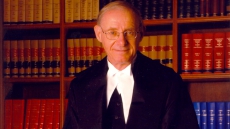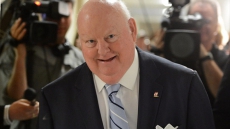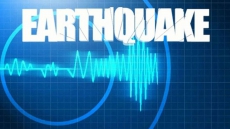OTTAWA — Canada once again finds itself in the middle of international and diaspora politics, this time revolving around a pair of First World War 100th anniversary commemorations in Armenia and Turkey on the weekend.
The Harper government is sending Immigration Minister Chris Alexander to Armenia to attend the commemoration of the 1915 massacre of Armenians at the hands of Ottoman Turks. It's a historic tragedy that Ottawa calls genocide, to the anger of Turkey.
Meanwhile, junior foreign affairs minister Lynne Yelich is off to Turkey to lead Canada's delegation, including veterans of the Royal Newfoundland Regiment, at ceremonies marking the centenary of the start of the Gallipoli campaign.
Canada's position is noticed by both sides. The Conservatives have publicly endorsed the Armenian view that the 1915 slaughter of 1.5 million people was genocide. The label has strained relations between Canada and Turkey, which wants the Harper government to change its stand.
Armenia and Turkey both invited Gov. Gen. David Johnston to their events, but he chose to attend a Gallipoli ceremony at the Canadian War Museum in Ottawa on Saturday.
Armenian ambassador Armen Yeganian said his government is more than pleased that a "high-level" representative from the Harper cabinet will be in Armenia.
Selcuk Unal, the Turkish ambassador to Canada, had no comment on Canada's decision to send a junior minister to Turkey.
But he does note that Turkey — unlike Armenia — is fighting alongside Canada against the terrorist threat in Iraq and Syria.
"We believe, being a NATO ally, being an important player in our neighbourhood and actually taking part in the same coalition against Daesh and ISIL, things could have been different," said Unal.
The Armenian issue still echoes across the world. On Thursday, Germany changed its long-standing position and described the massacre as genocide. Meanwhile, Turkish President Recep Tayyip Erdogan said the accusations against his country are groundless.
The Conservatives have courted votes from various diaspora groups, including the relatively large number of Canadians of Ukrainian and Tamil descent.
Yeganian said that the Harper government's recognition of the Armenian genocide doesn't necessarily translate into votes.
"I don't think because of that the Armenian community is pro-Conservative," he said, estimating the split as "roughly half and half" with the Liberals.
The majority of the 100,000 Canadians of Armenian descent live in Montreal and Toronto, he said.
Meanwhile, as the weekend's events unfold, the Armenians accuse the Turks of deliberately trying to spoil their commemorations.
The Armenians traditionally remember the killings on April 24, while the Turks recall Gallipoli — a touchstone on the road to Turkey's modern-day birth in 1923 — on April 25.
This year, Turkey has chosen three days of celebrations from Thursday to Saturday, overlapping Armenia's April 24 date.
"I don't deem it as Turkish diplomacy, I deem it as a cheap manoeuvre to distract international attention from (the) Armenian genocide," said Yeganian.
But Unal said neither his country nor the Ottoman Empire deserve the genocide label, nor the accusation it is trying to thwart Armenia's commemoration with its own major event.
"It is the Armenian government and the diaspora making this link, as if we are trying to shadow one's grief. In Gallipoli, half a million people died, including people from Canada."
That historic campaign, which unfolded over several months, involved troops from Britain, Australia and New Zealand and about 1,000 members of the Royal Newfoundland Regiment.





